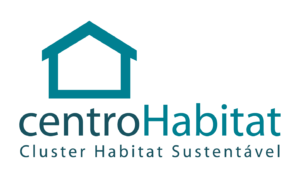Centro Habitat
Involvement in the project
The entities forming this Cluster intend to create synergies for the development of new products, techologies and building systems, a new pratice in designing space and surrounding areas, leading to an attitude of innovation through the built environment sustainability, aiming to generate competitiveness.
This cluster has adopted the subject of Sustainability as a dynamic factor to its strategic development, aiming to contribute for a more “Sustainable Habitat”.
While, in the national market, the strategic interventions are mainly related to rehabilitation, conservation and qualification of the built heritage, in the international market, especially in developing countries, the prospect is related to construction in general (buildings, cities, infrastructures). In both markets, the statement of a specialization in sustainable construction by companies and other cluster agents aims to be an element of differentiation, generating factors of international competitiveness.
Centro Habitat
Involvement in the project
The Company
Businesses
The entities forming this Cluster intend to create synergies for the development of new products, techologies and building systems, a new pratice in designing space and surrounding areas, leading to an attitude of innovation through the built environment sustainability, aiming to generate competitiveness.
This cluster has adopted the subject of Sustainability as a dynamic factor to its strategic development, aiming to contribute for a more “Sustainable Habitat”.
Sustainability
While, in the national market, the strategic interventions are mainly related to rehabilitation, conservation and qualification of the built heritage, in the international market, especially in developing countries, the prospect is related to construction in general (buildings, cities, infrastructures). In both markets, the statement of a specialization in sustainable construction by companies and other cluster agents aims to be an element of differentiation, generating factors of international competitiveness.

